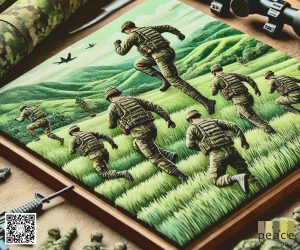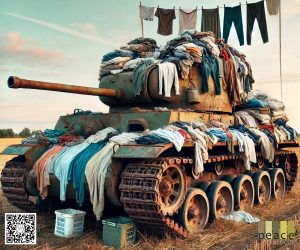Research and Analysis

Is Armenia’s Path to ICC Accountability Threatened by the Draft Peace Agreement with Azerbaijan?
This paper examines Armenia’s accession to the ICC amid evolving peace negotiations with Azerbaijan. It explores the legal and political obstacles to accountability and proposes alternative mechanisms for promoting justice and sustainable peace in the region.
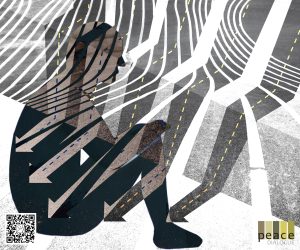
Building a Resilient Security Sector: A Roadmap for Transparent, Inclusive, and Accountable Defense Reforms in Armenia
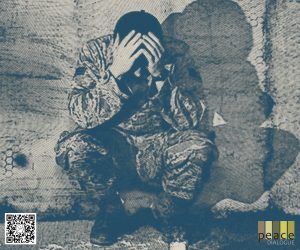
Tracking the Implementation of Armenia’s 2023-2025 Human Rights Action Plan: Achievements and Gaps in Right to Life in the Armed Forces
Scoping study/The Voice of the People: Addressing the Needs of Conflict-Affected Societies in Armenia-Azerbaijan Peace Efforts

This study represents a modest contribution to the peacebuilding efforts in the region, offering a nuanced understanding of the societal impact of the conflict. The research illustrates the risks of an overly narrow and top-down ‘normalization’ process that fails to address the popular concerns identified here and points to problems with the sustainability of a ‘thin’ peace treaty and process that neglects these issues.
Results of a Survey Among Conscripts During 2023 Summer Conscription

Peace Dialogue NGO’s study was designed to critically assess human rights norms and conscripts’ perceptions of military service in Armenia during the summer conscription of 2023. The initiative aimed to bridge the policy-practice gap in the realm of military service and human rights.
Between a Rock and a Hard Place: Security Sector Oversight in Armenia
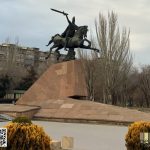
In the context of the “Developing Inclusive Oversight of Security” (DIOS) project in Armenia, an initiative running from December 2021 to June 2024, the Centre for European Security Studies (CESS) of The Netherlands, in collaboration with Peace Dialogue NGO in Armenia, has released a new policy brief. This brief carries the symbolic title: “Between a Rock and a Hard Place: Security Sector Oversight in Armenia.” It delves into the realm of democratic oversight of Armenia’s security sector, evaluating its capacity for effective oversight, interagency cooperation in holding the government accountable, and the prevailing culture of oversight.
Legal Status of Former Prisoners of War in the Republic of Armenia
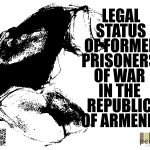
This report aims to shed light on the international legal frameworks that should guide the establishment of national regulations regarding former POWs and the application of laws to safeguard the rights of former prisoners of war. Extensive research has been conducted to examine international experiences and mechanisms for protecting the rights of former POWs and implementing them effectively.
Final Monitoring Results of Defense Sector-Related Actions within the 2020-2022 Action Plan for Human Rights Protection in Armenia

We are pleased to present the comprehensive report prepared by Peace Dialogue NGO, based on precise monitoring conducted from January 1, 2020, to December 31, 2022. This undertaking was initiated at the outset of 2020, with the primary objective of highlighting the significant role of civil society in shaping and implementing state policies pertaining to the protection of human rights within the Armed Forces.
Methodological Guide: Eight Simple Tools for Dealing with Difficult Conflicts

We are pleased to announce the release of our new methodological guide, “Eight Simple Tools for Dealing with Difficult Conflicts”. Developed by Peace Dialogue NGO, this manual is based on the methodology used in the series of “Alternative Mechanisms for Conflict Resolution” courses, which took place from October 13 to November 27, 2022. The aim of the course was to enhance conflict resolution skills among the youth in the northern regions of Armenia by fostering a constructive approach and developing their capacity to find realistic and rational solutions to conflict situations on a daily basis.
Analysis of Interviews Aimed at Identifying and Addressing Human Rights Issues in Armenian Military Forces

The research aims to reveal the servicemen’s attitude towards military service, military staff, and fellow servicemen, as well as find out the manifestations of the most common human rights violations in the armed forces, opinions about the law enforcement agencies in the military sector, the reasons for those, and the effectiveness of particular institutions inlaid in the army. The collection, systematization, and analysis of data on the listed phenomena are aimed at creating an informational basis for solving various problems in the armed forces or, at least, for assisting further, more targeted, and in-depth research in this direction (including those conducted by the government agencies of the defense sector).


